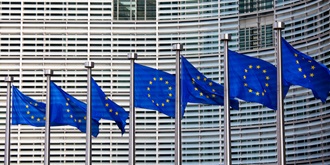Arms Trade Research
Sustainalytics’ Arms Trade Research enables investors to identify all publicly-listed companies that sell arms to sanctioned countries or countries where there is a high risk of violence against civilians. Our Arms Trade Research can help manage the reputational risks associated with investing in companies that supply arms to controversial regimes. Download the brochure to find out more.
EU Action Plan - EU Taxonomy
Our EU Taxonomy Solution provides ESG research and data that assesses clients’ holdings and portfolio alignment to the EU Taxonomy. We currently offer a Taxonomy Data solution and a Managed Portfolio Service. The Managed Portfolio Service provides a portfolio-level alignment assessment and the Data solution provides company-level assessment along with the supporting underlying company-level data. Companies receive one of four assessments: Aligned (/With Warning), Partially Aligned (/With Warning), Not Aligned and No Evidence.
Child Labor in Cocoa
Over two million children below the age of 18 work in hazardous conditions in the cocoa supply chain in Côte d’Ivoire (Ivory Coast) and Ghana. This engagement is founded on investors’ expectations for some of the largest companies in the cocoa sector, and addresses the issue of child labor in cocoa.
Global Access
Sustainalytics’ Global Access is our flagship platform for accessing our ESG research. The user-friendly interface includes functionalities that enable investors to read detailed company reports with qualitative analyses, screen companies on ESG criteria for security selection and product creation and run custom reports to communicate ESG performance. With the alerts functionality, clients can monitor their portfolios for ESG incidents and controversies.
Modern Slavery
It is anticipated that modern slavery will increasingly put companies at a competitive disadvantage through, for example, operational disruptions, compliance risks and loss of business due to damage to reputation. The engagement’s objective is to ensure high-risk portfolio companies adopt rigorous strategies on modern slavery.
Controversies Research
Sustainalytics’ Controversies Research uses smart technologies to monitor more than 60,000 media sources and 200,000 news items on a daily basis to identify companies involved in ESG-related incidents. Leverages this research to support investment decisions and manage reputational risks.
Human Rights Radar
Sustainalytics’ Human Rights Radar provides information on companies that operate in volatile regions where grave human rights violations are taking place. Our research helps investors better understand the nature, impact and extent of companies’ activities as well as how well they are managing relevant risks. Download the brochure to learn more about the product.
Product Involvement
Sustainalytics' Product Involvement research helps identify companies involved in a range of products, services and business activities for screening purposes. Each activity is accompanied with a concise summary of the way the company is involved in the relevant product or activity.
Feeding the Future
Agriculture is estimated to account for one-quarter of the world’s greenhouse gas (GHG) emissions, 80 percent of deforestation, 70 percent of water use and 78 percent of ocean and freshwater pollution. This engagement theme aims to contribute to a more sustainable trajectory for the future of food.
Global Standards Screening
Sustainalytics’ Global Standards Screening product provides an assessment of a company’s impact on stakeholders and the extent to which a company causes, contributes or is linked to violations of international norms and standards. Download the brochure to learn more about how Sustainalytics identify the Global Sustainability Signatories.
Thematic Engagement
The purpose of Thematic Engagement is to influence companies to proactively manage specific ESG risks and opportunities, as well as enabling the participating investors to play an active role in addressing material, shared sustainability challenges through raising sector and systemic standards in alignment with the Sustainable Development Goals (SDG) agenda.
Plastics - A Material Issue for Investors
The plastic waste issue is currently one of the fastest growing environmental topics on the political and business agenda. Plastic is a vital product to the global economy; however, the way it is being produced and managed is unsustainable, especially at the use and after‐use phases. The carbon footprint and emissions associated with plastic production along with the issue of the environmental and potential health impacts of plastic waste are a matter of growing concern for investors. In light of the environmental, social and financial challenges, the linear “take, make and dispose” approach cannot continue. The alternative is a circular economy approach, which focuses on maximizing resource value, making resource use more efficient and extending product value during use.


.tmb-thumbnl_rc.png?Culture=en&sfvrsn=68e0bae7_2)


.tmb-thumbnl_rc.png?Culture=en&sfvrsn=5a4feee0_2)








.tmb-thumbnl_rc.png?Culture=en&sfvrsn=ce56d6ce_2)









